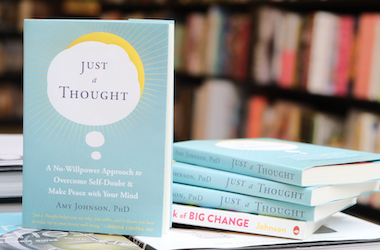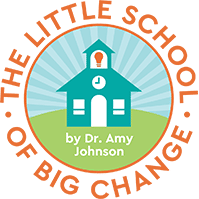Relationships: the source of the vast majority of pleasure—and pain—for the entire human species.
A couple years ago I taught this 30 minute class on having easier, more rewarding relationships. Yes, it’s old, but I recently revisited it and I felt called to share it with you again, two years later.
And yes, I know–there have been trillions of classes taught and books written on relationships. But this may be the first time you’ve heard it presented in quite this way.
Contrary to the popular cliché, relationships don’t have to be hard. Of course there will be ups and downs in relationships, just as there are in all aspects of life. But also like all of life, some people tend to ride those waves gracefully while others tend to be pulled under by the current.
My hope is that this video and the summarized points I cover will help you be the kind of person who rides the ups and downs of relationships with ease so that you can enjoy the natural connection with others that you deserve.
1. Connection is our Natural State
Consider this: What if deep connection with the people around us is actually our natural, default state? It’s our birthright—deep connection is what we were born into and it’s what is available to us throughout life.
We don’t always experience connection with others as particularly easy or natural, but that’s only because we grow into thinking adults. We let our thoughts (about who we are, who they are, how things are ‘supposed’ to be…) stand in the way.
If it’s true that connection is our natural state, that means deep connection is much easier and more accessible to us than it may appear. There’s nothing you need to learn and it’s not about finding that one special person to connect with. Deep connection is possible with anyone. When your busy mind settles down, you’ll find yourself experiencing much more of it, more naturally than you ever thought possible.
2. If it’s Not Love, it’s Temporary
It has been said that there are only two things in life—love and fear. Of those, only love is real.
If love is our essence and what we’re made of….if love is what we get before egos and personal thoughts and human identities enter the picture…then love and connection with others is what’s real. It stands the test of time.
All of that other stuff is temporary, fleeting, illusory.
Here’s the way I like to think of it: If you’re not feeling love, you’re feeling your human thinking. Human thinking is always changing and evolving, coming and going, forming and fading. Love is not. Love is stable, always there under the fleeting human stuff. It’s far easier to focus on what’s real than what’s not, when you know the difference.
3. It Doesn’t Have to be Hard
I know, I know. Everyone says relationships are hard. And I’m not saying that we don’t all experience difficulty in relationships at times—we most certainly do. It’s just that we innocently make relationships much harder than they actually are because we think sooo much.
Being in relationship with others is pretty natural, actually. It’s the easiest thing in the world when we don’t step in and over-think it. Looked at the other way–when relationships feel hard, we’re caught up in our thinking. As that thinking fades and changes, things look different.
4. Keeping Score is a Relationship Killer
Keeping score, as in “I did this for you, what did you do for me?”, is not a good idea. Score keeping behavior is rooted in fear and insecurity.
When you look at the big picture, what could you possibly have to be insecure about? Even if your relationship isn’t doing well…even if your relationship is about to end…what could you possibly have to be insecure about?
If connection is our default state (rather than a secret code we crack with only one or a few very special people during our lives), opportunities for connection are there in every moment, with everyone we encounter.
5. Compassion rather than Resentment
Do you know the very simple difference between compassion and resentment? It’s whether you’re thinking about you, or whether you’re thinking about the other person.
When you’re thinking about you (i.e., keeping score), what others do creates resentment. “He didn’t call me!” you say. Feelings of resentment are the natural consequence of those thoughts.
But when you are thinking less about you and more about them, compassion is the likely result. “He didn’t call me”, you say, “I hope he’s okay.” Or “I wonder what he’s experiencing”, or “I sure would love to talk to him”.
Thinking less about yourself tends to add up to a much nicer feeling.
6. Communicating Every “Problem” is a Terrible Idea
Can you imagine how serious and un-fun your relationship might be if you felt the need to talk about everything you experienced as a “problem”?
Constantly discussing problems not only places you in a low feeling, it masks the natural love and connection that always exists. It delivers a relationship that is not light, fun, or easy.
Most people discuss their problems tirelessly because they believe they have to in order to solve the problems. But what if most problems were really only issues of perspective?
From what I’ve seen, the vast majority of problems go away on their own when our thinking changes. Sometimes the less we discuss them, the better.
7. Give what you want to get
If you want to get something from your relationship—and let’s face it, we all would like to get something—give it.
The absolute fastest, most sure fire way to get anything is to give it. And if you’re an overachiever and want some extra credit, give more than you want to get and see what happens.
8. Don’t Revisit the Past
There is rarely a real need to revisit the past.
What’s done is done, and revisiting or holding on the past can be the death of a present-moment-based relationship. This doesn’t mean “don’t ever revisit the past”. That’s not what I’m saying at all. Sometimes looking at things that are done and over is what feels helpful. It’s just that you don’t have to look back all the time. There’s rarely a true need to do so.
There is one exception to this: If your relationship past was wonderful and full of great feelings, go there as often as you’d like.
9. Unkind acts are acts of fear and insecurity
Please remember one thing: What others’ do is not about you. Their behavior is about them, just like your behavior is about you.
Every single unkind or unloving thing that any of us ever does—and yes, I really do mean ALL of them, that ANY of us EVER does, is rooted in our own fear or insecurity.
Mean people aren’t mean, they are only scared or hurting.
10. It’s always, always, always about the feeling
The absolute most important factor in any relationship is the underlying feeling that exists between two people.
In the early days, when you’re madly in love, it’s all about the feeling. Nothing else matters. Everything else is drowned out or interpreted through the filter of that wonderful feeling.
When your toddler grabs your hand, it’s about the feeling. When your parent tells you they are proud of you, or your coworkers respect your work, it’s always and only about the feeling.
Nurture the feeling. It’s the most important factor in any relationship.





